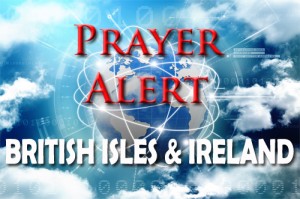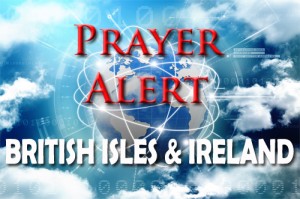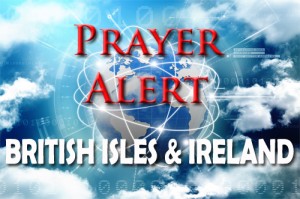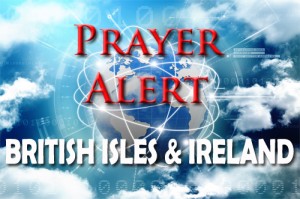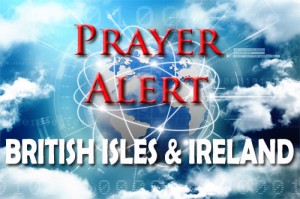Displaying items by tag: Brexit
Brexit and Agriculture
Brexit could injure food and farming or reform it; depending on whether we adopt, amend, or abolish about 4,500 EU regulations. If Michael Gove can highlight the future of our food and farming in negotiation and not reduce it to a bargaining chip, he could make interventions to change our food system for the better. Using government procurement for schools, hospitals, the military and prisons to favour healthy British food. He could adopt a joined-up policy and target subsidies to increase production of the sort we need for health – more fruit and vegetables, less sugar and intensive meat production. He could ensure new trade deals are built on maintaining welfare and environmental standards, not lowering them to compete in new markets. He could insist that continued access to foreign labour is tied to the industry, improving what are often appalling working conditions and pay so that British workers are drawn back to jobs they now shun. See also the Bishop of St Albans comments on ‘Food Security’ at https://www.theguardian.com/society/2017/aug/09/food-security-has-to-be-a-brexit-priority?CMP=twt_gu
Brexit and UK foreign policy
The Brexit teams meet this week after a delayed negotiation start. Pray for both Davis and Barnier as they compare their respective positions; may they make good progress, identifying differences and recognising similarities that can be reinforced. The Centre for European Policy Studies believes the delay is indicative of UK politicians’ division and infighting. Pray for a healing of rifts during the summer break between chancellor Philip Hammond and his colleagues, and for harmony when parliament resumes in September. Also many believe that, whether through arrogance or incompetence, the reputation of the Foreign Office has been undermined under Boris Johnson. His comment that ‘the EU could go whistle for its money in the Brexit negotiations’ opened a potential no-deal scenario which could dismantle the economy. Pray that Mr Johnson, a man of high intelligence, may reveal the more serious and credible side of his personality.
Europe wants Brexit clarifications
European Union’s chief negotiator Michel Barnier said on Thursday 20 July that a ‘fundamental divergence’ with Britain remained on how to protect expats’ rights after Brexit, and insisted that the European Court of Justice should be the guarantor of the rights of citizens living abroad. Also, in a joint news conference with British Brexit secretary David Davis, he said Britain needed to provide clarification on the Brexit bill and on the Irish border at the next round of talks in late August. Expats’ rights, the financial settlement, and the Irish border are the three key issues to be solved before the EU is willing to begin talks on a future trade deal with Britain.
UK, Brexit and EU changes
Europe will tackle the deep problems that drove Britons to vote Leave. The European Commission’s chief strategists say they now realise that they must change fundamentally to remain relevant to people's lives. Jean-Claude Juncker’s top officials argue that the EU is becoming more open and democratic, and that the future ‘must not be fudged or decided behind closed doors’. They directed their message to the British people, after some member states signalled that the door is still open if the UK wishes to be a part of the new future. Steve Baker, UK’s minister negotiating Brexit, said he wants the EU torn down, adding, ‘They realise that disintegration, illiberal democracy and populism are profoundly dangerous to our democratic traditions - the freedom and tolerance painstakingly built over decades, which has at times been taken for granted.’ The Archbishop of Canterbury called for a cross-party Brexit commission, saying that working together could draw much of the poison from Brexit debates.
Lord Adonis urges support for ‘soft Brexit’
Former Labour Cabinet minister Lord Adonis has called on his party to give its 'full support' to Philip Hammond's vision of a 'soft Brexit' instead of the 'ideologically crazed' alternative. He described himself as a 'progressive Christian' as opposed to the 'bigotry' of some conservative strands of the faith. Speaking on the same day as the Queen's Speech, he said, 'The overwhelming issue of importance is Brexit. There is clearly a battle going on between hard and soft Brexit, and it is entirely unclear at the moment where this might end up. But it seems to me vital that Britain doesn't leave the customs union or the single market.' On his faith, Lord Adonis said: 'I'm what I like to term a progressive Christian: I see no incompatibility at all between a strong Christian faith and being entirely liberal on social issues.' He also disapproved of Liberal Democrat leader Tim Farron’s decision to resign last week, adding that it is perfectly possible to be a Christian and the leader of a progressive party.
Queen's Speech on 21 June
Theresa May is pressing ahead with holding a Queen’s Speech to set out her plans for government, while negotiations continue with the Democratic Unionist Party about the nature of its support for her minority government. A senior Conservative source said that there was broad agreement with the DUP on the principles of the Queen's speech, but there is as yet no formal ‘confidence and supply’ deal which would tie the DUP into backing the government on key pieces of legislation. The four areas of agreement are strengthening the union; combating terrorism; delivering Brexit; and delivering prosperity across the whole country. However, some aspects of the Conservative manifesto, including scrapping free school lunches, expanding grammar schools, and means-testing winter fuel allowance for pensioners appear unlikely to be included.
German media: a soft Brexit ?
Senior figures in Europe have been pondering how the result of Theresa May’s election gamble will affect the Brexit negotiations. The newspaper Frankfurter Allgemeine Sonntagszeitung said that the European Commission views the election result as a sign that most Brits don’t desire a ‘hard exit’ from the EU. The European Commissioner, Günther Oettinger, has reportedly said that it may now be possible to discuss ‘closer relations’ between the UK and the EU than Mrs May had originally planned. However Wycombe MP Steve Baker, a committed Christian and one of the most vocal Eurosceptic Tory MPs, was moved in the cabinet reshuffle to an important role in the Brexit department. The choice of Mr Baker is likely to anger those hoping the election result would force Mrs May to adopt a more conciliatory tone on Brexit and drop threats to leave the EU without a trade deal. See also
Brexit negotiations: who to pray for
EU institutions playing a significant role in the Brexit negotiations are: a) the European Council,which defines the general political direction and priorities of the EU and consists of the heads of state or government of member states, together with the President of the European Commission. b) the Council of the EU, which represents member states' governments. That is where ministers from EU countries meet to adopt laws and coordinate policies. They play a key role in negotiating and approving EU legislation and international agreements; c) the European Commission, the only institution with the authority to initiate legislation in most areas. It draws on input from a variety of other bodies; d) the European Parliament, comprising 751 MEPs elected by citizens of the 28 member states. Its role is to scrutinise, amend and vote on legislation.
Europe: EU Brexit discussions
Yesterday the EU Brexit negotiation team had ‘constructive’ talks with Theresa May; tomorrow EU leaders will meet to adopt their joint negotiating position on Brexit. Downing Street described their talks as ‘constructive’, after Mrs May’s previous tough stance on key issues of freedom of movement. Also, Angela Merkel has told German MPs that the future EU / UK relationship can only be discussed once the problem of the UK payments to the EU budget has been resolved. Shortly after her speech, The EU trade commissioner stated that the EU will definitely reach a free trade deal with the UK after Brexit. The dates that the two ladies are working towards are: 29 April - EU members (excluding the UK) adopt Brexit negotiating guidelines. 8 June - UK election prior to Brexit talks. 24 September - German parliamentary election, with Mrs Merkel seeking a fourth term. 29 March 2019 - deadline for ending the talks on UK exit terms.
A chance to resolve religious symbol ban 'inconsistencies'
The Church of England's representative in Parliament has suggested Brexit could resolve 'inconsistencies' in the recent ruling on religious symbols. Last month the European Court said that the banning of any political, philosophical or religious sign in the workplace does not constitute direct discrimination (the test case regarded the wearing of a Muslim veil in Belgium). Caroline Spelman, Conservative MP for Meriden, said the CofE was very concerned by this decision. She said, ‘The ban conflicts with the pre-existing rulings of the Court of Human Rights. Presumably by leaving the European Union, we stand some chance of resolving these inconsistencies.’ Last month, PM Theresa May also questioned the European Court's ruling.

